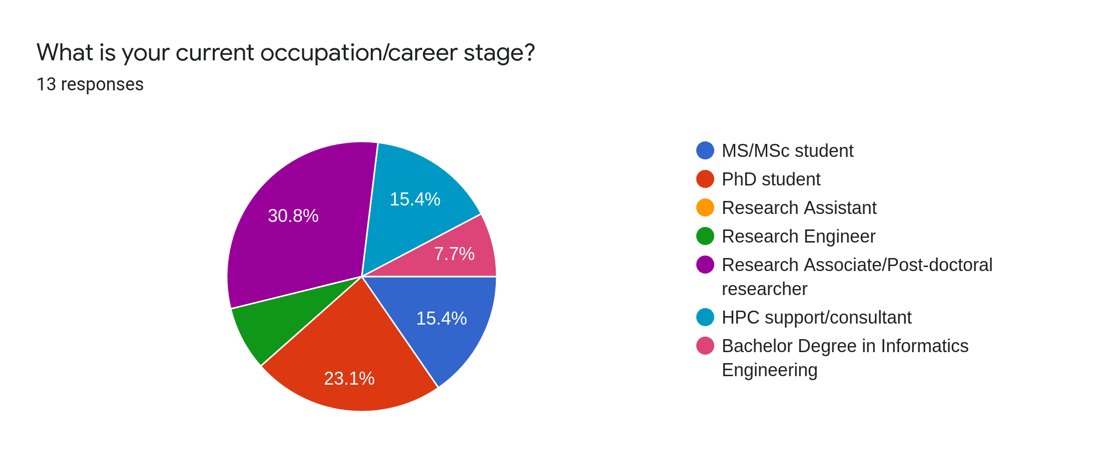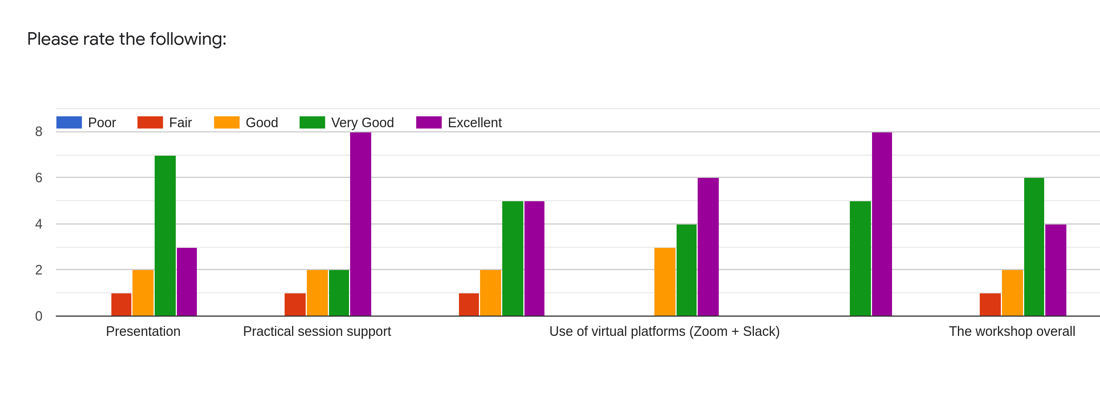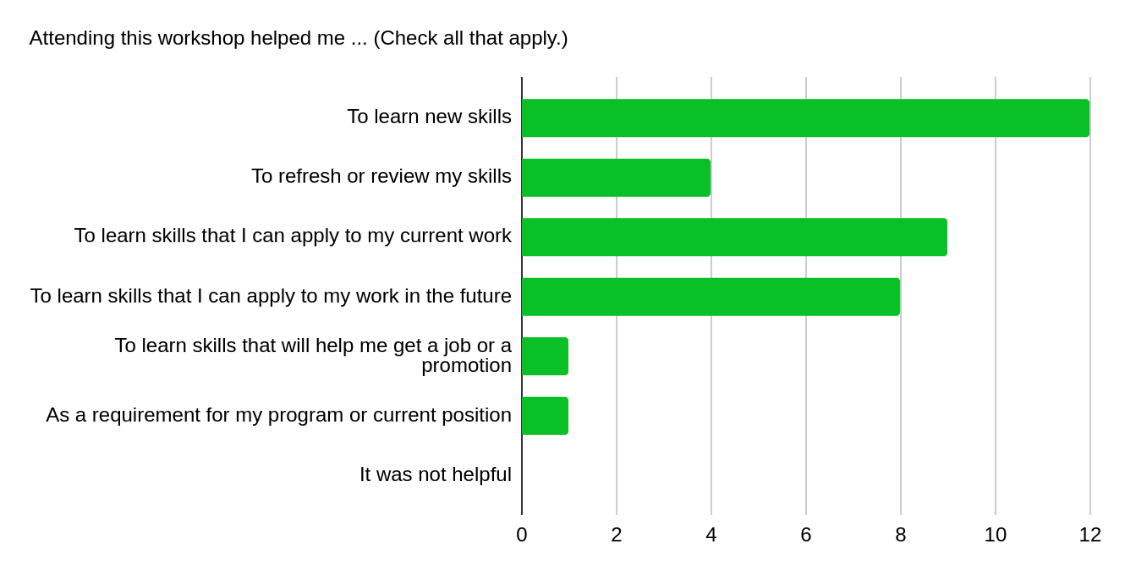HPC training is a crucial step in encouraging and building a diverse and inclusive workforce for our community. It is essential to ensure that all underrepresented groups advance equitably in their careers. While the strive to achieve this goal will be a multifaceted campaign in any workplace, facilitating development of the HPC skills among underrepresented groups can be a community effort. In response to this, over the last couple of years, we have seen an increasing number of activities including workshops, tutorials and fellowship progammes that aim to close the gap in the HPC community, e.g., Women in HPC workshops at SC and ISC conferences since 2014.
On 19 to 21 April 2021, we, Fouzhan Hosseini (NAG Ltd), Marta Garcia-Gasulla (Barcelona Supercomputing Center) and Radita Liem (RWTH Aachen University), came together to run a performance optimization workshop aimed at women and underrepresented groups. This workshop was organized and taught by an all-female team. The event was supported by POP CoE in collaboration with the NAG Women in HPC (WHPC) chapter and VI-HPS.
Scope and format of the workshop
While nowadays HPC resources are accessible to a much wider range of users, their efficient use at an application level remains a challenge. Optimizing the performance of HPC applications can add a lot of value, including reduced expenditure, faster results and novel solutions. Our 3-day workshop was targeted at students, researchers and professionals that want to acquire the skills to analyze the performance of their own codes. To achieve this, we covered
- The fundamentals of HPC performance analysis
- An overview of the POP CoE methodology
- The open-source performance tools used in the POP project and how to use them effectively including Extrae/Paraver, Score-p/Scalasca/CUBE and Vampir
- Show case of performance analysis using the POP methodology and tools
The workshop was held online using the Zoom and Slack platforms. There were lectures and demo sessions in the morning and hands-on sessions in the afternoon, in which attendees could either work on their own application or on the examples and benchmarks provided, with the assistance of experts.
Given that the topic of performance optimisation is rather advanced, we assumed some basic knowledge of an HPC environment and familiarity with a parallel programming model such as MPI and/or OpenMP. A large majority of the attendees met these prerequisites. The figure below shows the parallel programming paradigms they currently use or plan to use in their applications:
Workshop atmosphere
This workshop had thirty-five participants in total. However, the number changed during the event, as the agenda and the online format provided attendees with the flexibility to skip some sessions if needed. The workshop was primarily aimed at women and underrepresented groups in the HPC community, and this was reflected in the demographic of our attendees. The attendees were at different stages of their education or career, with the majority being post-doctoral researchers (30.8%) or PhD students (23.1%), followed by MSc Students (15.4%) and HPC support staff (15.4%). The majority of attendees were based in European countries.

The instructors openly talked about their experience in HPC, especially performance analysis and optimization, sharing frustrations, mistakes and joys. They continuously encouraged questions and created conversations. This created a welcoming and relaxed atmosphere, where attendees felt comfortable to work on their codes, using the performance tools and the POP methodology, and ask for help when they needed support.
Our aim was to create a safe zone for asking any HPC-related question. This matched our attendees’ expectations. We asked our attendees what they expected from a workshop that is primarily aimed at women and underrepresented groups. Their responses can be summarised as
- No difference in content, knowledge and skills
- A more relaxed environment, where there are no naive questions and everyone feels comfortable to raise their hands
- Bringing underrepresented groups together, showing role models and improving visibility
In the words of one of our attendees,
“Nothing and everything at the same time. Nothing in the sense that contents and knowledge is not different (obviously). Everything in the sense that maybe some women (specially young ones) might feel less pressure than in some other situations where they (unfortunately) still have to demonstrate that they are good enough to be there”.
Outcome and Future plans
We asked attendees whether they have attended similar performance tuning workshops that were not specifically aimed at women and underrepresented groups in the HPC community. Only two out of twelve responded positively and one indicated that they definitely felt more comfortable learning in a workshop aimed at women. Nine had not attended other workshops as they had not come across a suitable opportunity, and one specifically indicated concern about the atmosphere in other workshops.
This workshop was a great success! We asked attendees to share what was the most important takeaway; 91% of responses (12 in total) where in line with the learning objectives of the workshop, including learning the fundamentals of HPC performance analysis and being able to use the POP methodology and tools to better understand the behavior of their code. Here are some quotes form our attendees as examples:
“I learnt to see my code on a different way that can be analyzed even without seeing the source”, "I always just used a parallelized code. Never looked so deep into it. I got some ideas about it.”
and
“The most important thing I learned was the use of new tools to analyze tracing. It really opened my eyes to new options to analyze my codes.”.


Encouraged by the success and impact of this workshop, we plan to run similar workshops in the coming months with more space for networking. Stay tuned!
Training team
We would like to thank our fantastic training team, without whose contribution running this workshop would have not been possible:
- Marta Garcia-Gasulla (Barcelona Supercomputing Center)
- Judit Gimenez (Barcelona Supercomputing Center)
- Sandra Mendez (Barcelona Supercomputing Center)
- Fouzhan Hosseini (Numerical Algorithms Group)
- Christina Mühlbach (TU Dresden)
- Anara Kozhokanova (RWTH Aachen University)
- Anke Visser (Jülich Supercomputing Center)
- Radita Liem (RWTH Aachen University)
We would like to end with one of our attendee’s takeaway from this workshop which was
“you are not alone! :-)”
-- Fouzhan Hosseini (NAG)
